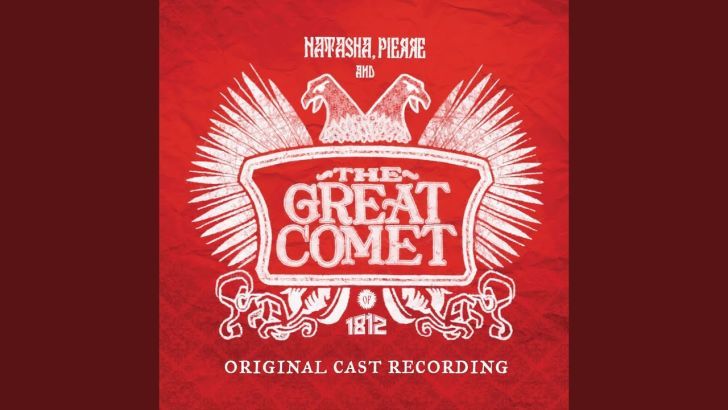"It seems to me that this comet feels me": The Star and the Great Comet of 1812

Today I wrote an upcoming guest post for James October’s newsletter Pop Tarot, in which James juxtaposes tarot cards with objects d’pop (usually TV shows, but I wrote about a video game, Disco Elysium). Now I can’t stop pastiching, so here’s one more Pop Tarot-style post. It’s about The Star, and also the title track from Natasha, Pierre and the Great Comet of 1812.
*
I never know what to make of the Sun, the Moon, and the Star, the trio of cards that provide the astronomical backdrop for the final shots of the major arcana. They are curiously abstract images — there are human figures in them, but they’re allegorical rather than archetypal. In a story about a person’s journey from innocence to self-mastery, why is there an extended subplot set in space? One interpretation is that this is Pale Blue Dot; it’s Powers of Ten. It’s about space as the bringer of perspective and the provider of scale. Too tidy, too pat, but it begins to get at something.
Or perhaps the Star is Polaris, the North Pole, the magnet towards which our compass is oriented. Moral strength: the awareness of good and evil, and the tug towards the good. The place where all this tidiness breaks down, where the house settles off-true and the knickknacks gather dust, is the question of which star to follow.
War and Peace is about that. It’s strange that the main point of entry most people have with Tolstoy’s epic is a running gag in Peanuts about its inaccessibility, because it’s a more accessible book than Moby-Dick. In fact, it’s not unlike Peanuts, in that it’s about a hapless young man ineffectually searching for meaning while caught up in a long-distance three-legged race with a woman who means him ill.
Tolstoy’s unhappily married hero, Count Pierre Bezukhov, is a spiritual seeker par excellence. He selects people and causes at random, and then he entrusts them with his moral destiny. At one point, he devotes years to ardent mystical study because he runs into a charismatic Freemason at a train station (in fairness to Pierre, the guy has a skull ring).
Dave Malloy’s musical adaptation of a few crucial chapters of War and Peace — Natasha, Pierre and the Great Comet of 1812 — depicts a crucial turning point in Pierre’s fumble towards enlightenment, albeit one that readers of the book know he will soon forget. Not much actually happens to him in The Great Comet (although rather more happens to Natasha). He stumbles through a drunken duel, fails to help a pair of Bad Decision Friends, has a fit of numerology and becomes convinced that he’s destined to kill Napoleon, and finally experiences a swift and sincere revelation about other people’s interiority that leads him to sing the show’s sublime title number, “The Great Comet of 1812.” Here is Malloy singing it (he wrote the part for his own sweet, nasal, whispery tenor, thus doing a solid to trans men everywhere that we will NEVER forget):
Pierre has found his guide, his pole star, but the whole damn point is that it’s a comet. It doesn’t know from magnetic north. Its orbit is incomprehensibly long (the real Great Comet of 1812 — actually, 1811 — has an orbital period of 2,742 years, and won’t be seen again until the 48th century!). Nothing could more explicitly symbolize Pierre’s restless turning over of ideas, his eagerness to heave his heart and soul into whatever arms pass near. And yet the moment is so sublime that it makes the frost run, the ice crack, the comet itself “stop for me” to recognize, like a good friend, “my softened and uplifted soul.” The comet won’t last, and it is not going to be the thing that turns Pierre into a good or stable man, but in that moment, it fixes him “like an arrow piercing the Earth.”
And then it’s done. The book goes on for hundreds and hundreds of pages. Napoleon invades Russia, and Pierre doesn’t kill him, and there is a dreadful scene involving the worst character in the novel and his incredible legs, and also there’s some lesbian stuff that I will die before I believe is unconscious on Tolstoy’s part. But for this one early moment, Pierre finds his “bright star, having traced its parabola with inexpressible speed through immeasurable space.” He knows it for what it is, and he learns the one lasting lesson of that night, which is how to imagine what peace might feel like.